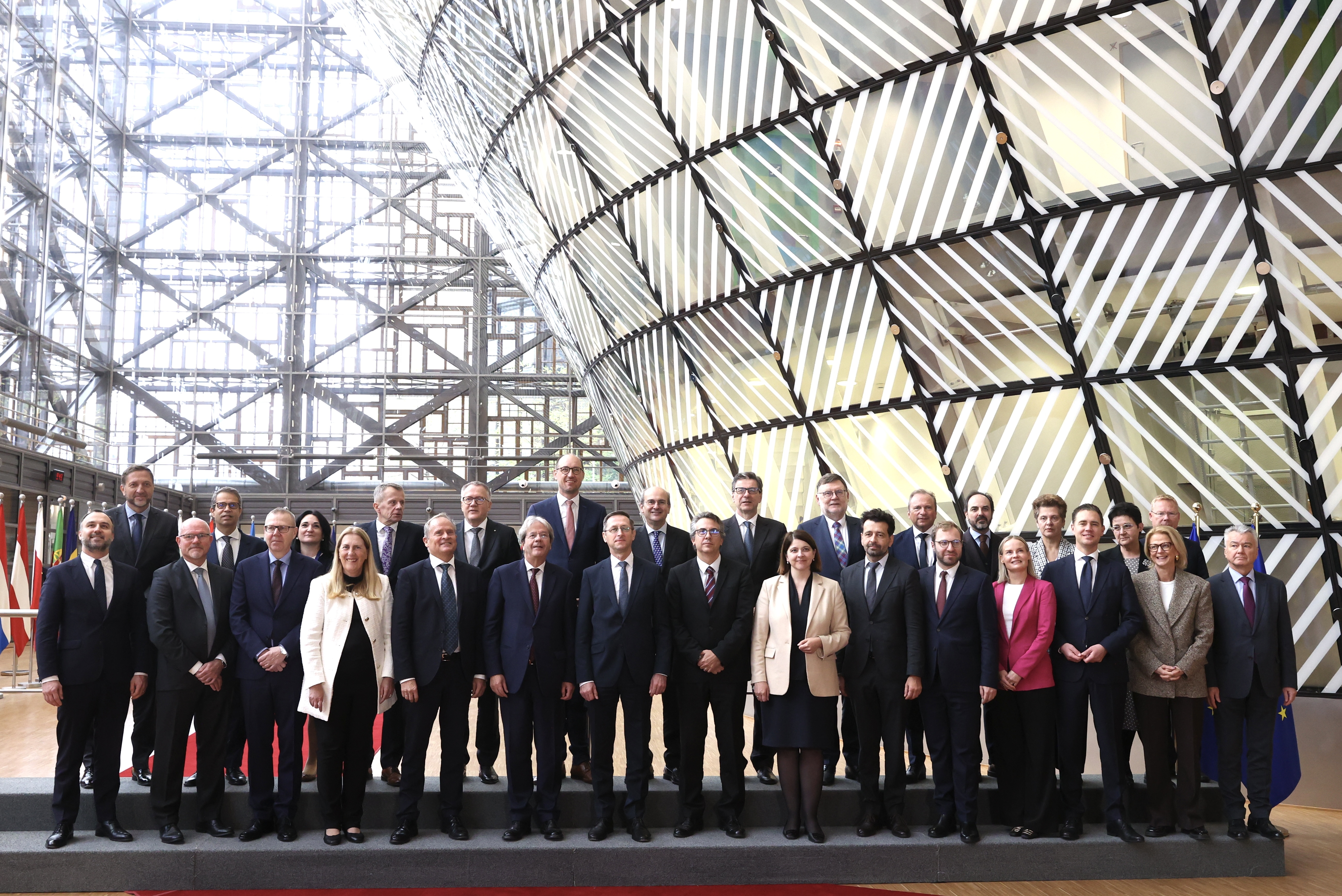
EFTA and EU ministers and high-level representatives for the annual EFTA ECOFIN meeting.

EFTA and EU ministers and high-level representatives for the annual EFTA ECOFIN meeting.
The economies of the EFTA and EU States are highly integrated, as emphasised by Norway’s State Secretary of Finance, Mr Erlend Trygve Grimstad, at this year’s EFTA ECOFIN meeting on 5 November.
This annual meeting, held on the margins of the EU Council of Finance and Economic Affairs (ECOFIN), is a forum for EFTA and EU Ministers of Finance and Economy to discuss common economic issues. The meeting was chaired by Mr Mihály Varga, Minister of Finance and deputy Prime Minister of Hungary, who currently holds the Presidency of the Council of the European Union.
On this year’s topic, “Improving Competitiveness in the Long Term – Taking on the Challenges of Demographics and Productivity”, Mr Grimstad, representing the current Norwegian Chair of the EFTA Standing Committee, presented ageing populations, geopolitical risks, cyber security concerns, scarce labour supply and the need for diversification of supply chains as the key challenges facing the EFTA States in aiming for competitiveness.
To tackle these challenges, Mr Grimstad stated that it was crucial to foster a high level of integration between the EU and EFTA States’ economies, promote robust economic framework conditions, enhance international trade and adhere to a liberal, rules-based system.
Speaking on behalf of the EFTA States, he stressed that the key to solving these challenges was to use resources efficiently. This could be done by pursuing sound monetary, fiscal and structural policies to ensure stable economic framework conditions, thereby unleashing the potential of the resources, optimising their allocation and improving welfare.
The other EFTA States were represented at the meeting by the Permanent Secretary of the Ministry of Finance and Economic Affairs of Iceland, Mr Hermann Sæmundsson; Ambassador at the Representation of Liechtenstein in Brussels, Mr Pascal Schafhauser; and State Secretary of Economic Affairs of Switzerland, Ms Helene Budliger Artieda.
Mr Grimstad listed prudent regulation, investment-focused policies, productivity and heightened labour supply as ways for the EU and EFTA States to tackle the challenges ahead. He furthermore underlined that the EFTA States supported close cooperation on policies that “stimulate competition, including strict state aid rules, and unlock private capital to business investments in Europe”.
Lastly, he highlighted that everyone had a strong interest in ensuring that green initiatives across the globe contributed to speeding up technological development, lowering decarbonisation costs and reducing greenhouse gas emissions.
Mr Paolo Gentiloni, European Commissioner for Economy, presented the Commission’s position on the topic and summarised the status of the EU economy. He emphasised that the EU and EFTA States shared strong common ground and a common interest in the effect of demographic changes and the need to strengthen the competitiveness of their economies.